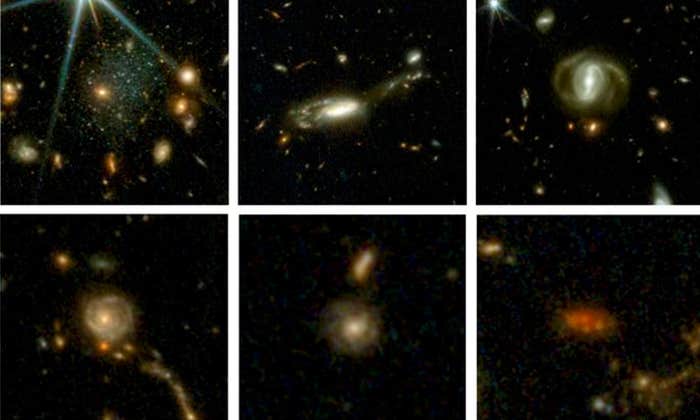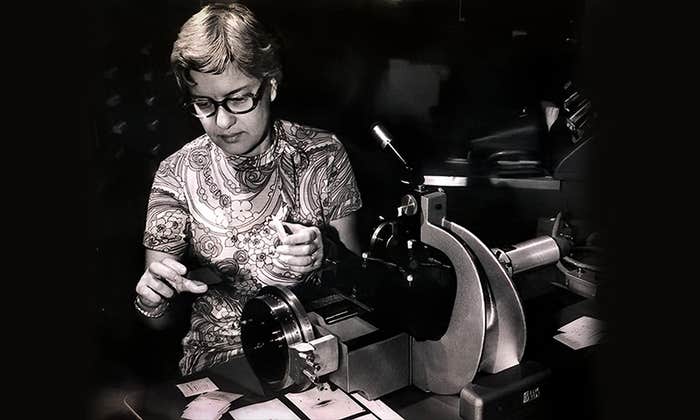Earlier this year, when Amy Adams was in Montreal working on the sci-fi movie, Arrival, out today, she hung out with linguist Jessica Coon. In the film, Adams plays a linguist tasked by the United States government with deciphering a visiting aliens’ language. The film’s producers tapped Coon, an associate professor in the Department of Linguistics at McGill University, as a scientific advisor because she specializes in studying languages spoken by relatively few people, notably Mayan tongues in Central America. Coon says chatting about her work—analyzing the structure of rare languages, working in the field—with Adams is probably the “most glamorous thing” she will ever do in her academic life.
For Coon there’s a sense of urgency in her work, since many obscure languages are fast going extinct. She thinks that if linguists don’t analyze the rarer languages of the world’s 6,000 while they still can, they won’t be able to understand the nature of human language; what linguists do understand, she says, is derived from the accessible languages of Western Europe.
I spoke with Coon about a different sort of urgency—the one Adams’s character feels under the pressure of having to quickly figure out an alien “tongue”—as well as the thrill of working on an alien-invasion film about a linguist.
How did you approach the idea of dealing with a completely different communication system from a linguistic standpoint?
It’s something that I had certainly never thought about before they contacted me to work on Arrival, but it was a lot of fun. Imagine a kid or even a linguist learning a human language that is completely unstudied, that we’ve never looked at before. There are no grammars, no dictionaries. A linguist approaching this language is still going to have a huge advantage because human languages follow certain trends. Whereas when it comes to an alien species, we just have no idea. It sort of connects more general questions about cognition and perception and how different could another life form’s communication system or general cognitive system be from ours.
What if we do actually make contact? What then?
I think if aliens arrive here in spaceships, if we establish contact this way, we can be pretty darn sure that we are dealing with people who have the ability to do really complicated, abstract representations of things, the same way humans do. We don’t obviously see that in other species on the planet. It seems likely that even if their language is very different from ours, there are going to be patterns there, and there are going to be points in common just based on the fact that they arrived in some spaceship. If we find a species on another planet that is not as advanced as humans are, then I think probably we’re in the same boat as we are when we try to work out dolphin communication or bee communication. Clearly there are communication systems there, but that they don’t seem to involve the same amount of hierarchical structure and ability for abstract communication that humans have, I think is fair to say.
How similar is your own work on “exotic” languages to the work of Adam’s character in the movie?
Formal linguistics, modeling grammar, is a relatively young discipline, and a lot of our current theories about how human language works have been developed primarily based on information from the better-studied and more accessible languages like English, French, Spanish, and German.
If we want a theory about human language as a whole, we need to get out there and really understand the grammars and the properties of “exotic languages” and less-studied languages. I’m working on Chuj, which is a Mayan language spoken in Guatemala by a small group of speakers, looking into the structural properties of the language and trying to determine if our current theory of syntax adequately captures all of the differences we see in Mayan ones, or do we need to make modifications here and there.
There are certainly things that remain to be discovered about the principles of how these languages work, but I still have a huge head start over Amy Adams. There are a lot of native speakers who are involved in linguistic work in the Mayan language family, so it’s not like her job, which I think is much harder.
Did the film represent linguistics well?
I think the film does a really nice job of representing some things about the fieldwork experience. When the military generals are on Adams’ case like, “Hurry up, we need to know this now. This is urgent, you can’t be starting with the basics here.” She was like, “No, we have to start from the basics because you can’t just go straight to something super complex. The room for misunderstanding is huge and the consequences are big in this case.” She does a nice job of explaining that, in science, we can’t go straight to the enormous theoretical question. We have to make sure we’re starting on a solid foundation of simpler things.
Did you advise on how to portray the linguistic scientific process?
In a two-hour movie, no one actually wants to sit through the details of, “Ooh, that squiggle must mean this and that.” You get this sort of montage of Amy Adams looking like a good, obsessed, and haggard—a tired scientist hard at work, and the interactions that she’s having with the aliens. The actual language isn’t deconstructed for us, or the actual step-by-step process isn’t there, so a lot of what I advised on was some of the visual stuff that went into the movie. I read the script a few times, and offered feedback on some of the places where they talk about linguistics.
Is there anything that you would have liked to see done differently in the movie?
There’s this scene that’s even in the trailer where Forest Whitaker comes into Amy Adams’ office and says, “You’re at the top of everyone’s list when it comes to translation.” I guess the backstory for why she’s the one that they get is that she already has this high military-security clearance because she had been asked to do some Farsi translating. Farsi is spoken by millions of people. It’s a national language, so of course the US military has Farsi translators. They’re not bothering academics.
A lot of the world doesn’t actually know what linguists do, or what this field’s about. So, often people mistake us for glorified translators, which is not what we do. We’re not translators, we’re interested in the structure of language. He just sort of makes her look like a translator. Which I think is going to make linguists cringe, but the rest of it is fantastic.
How can studying the structure of more exotic languages tell us more about human language in general?
It’s about testing out current theories and the predictions that our theories make against these less studied languages, and a lot of progress is being made here. It’s urgent because a lot of these languages are endangered. There’s somewhere between 6,000 and 7,000 languages spoken in the world today, but according to some estimates, up to 90 percent of them might be no longer spoken by the end of this century. Just as in biology, anytime an animal species or a plant species becomes extinct, the same problem happens in linguistics where we’re potentially losing some really important piece of the puzzle of how human language works.
Would you be interested in acting as linguistic advisor for other films?
Yeah, as soon as the next linguist is starring in a major motion picture, I’ll be there. It doesn’t happen very often, and I think that’s one reason that the linguistics community is really excited about this movie. Because it really is bringing linguistics sort of front and center in a way that just hasn’t happened a lot in Hollywood.
Dr. Kiki Sanford holds a Ph.D. in Molecular, Cellular and Integrative Physiology from U.C. Davis, and is a specialist in learning and memory. She is also the founder and host of the radio show This Week in Science.
Watch: Gregory Laughlin, an astrophysicist studying exoplanets, discusses his sci-fi influences.



























